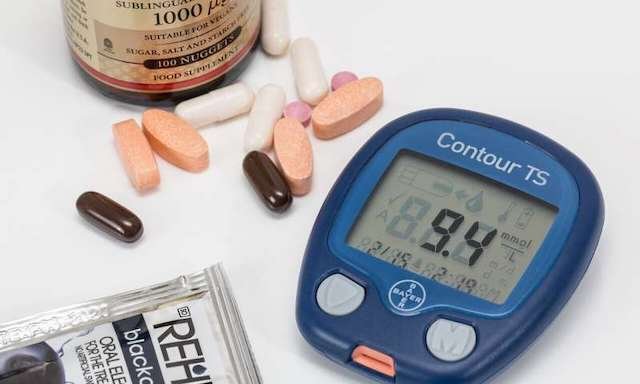
In a new study, researchers found that maintaining vitamin D receptor (VDR) levels in pancreatic cells that synthesize and secrete insulin (β cells) could help prevent the development of diabetes and counteract pancreatic cell damage caused by the progression of the disease.
The finding shows this receptor can be a potential therapeutic target in the prevention and treatment of the disease.
The research was conducted by a team at the Universitat Autònoma de Barcelona (UAB).
Vitamin D deficiency has been associated with a greater prevalence of both type 1 (T1D) and type 2 (T2D) diabetes, and the relation of this disease with variations in the vitamin D receptor gene has also been described.
Nevertheless, the specific participation of this vitamin receptor in the development of the disease, specifically in the β cells, continues to be unknown.
That is why this new study has focused its efforts on understanding the role played by the VDR of these pancreatic cells in the development of diabetes, by analyzing its behavior in mice.
The researchers found lower VDR expression in the pancreatic islets of mice with both type 1 and type 2 diabetes.
In addition, they also demonstrated that the overexpression of VDR in β cells of diabetic mice counteracted the disease, while at the same time proving that sustained levels of vitamin D receptors in these cells could preserve their mass and function and protect against diabetes.
These results suggest that maintaining VDR expression could be essential in counteracting damage to β cells and protect against the development of diabetes.
The team says sustained VDR levels protected transgenic mice from developing severe hyperglycemia, partially preserving the mass of β cells, thereby reducing local inflammation and diabetes.
The researchers also confirmed that VDR expression was negatively correlated with circulating sugar levels, i.e., glucose stimulates VDR.
Although the benefits of supplementing with vitamin D as a way to prevent diabetes have been widely reported, clinical data on its effectiveness in improving the state of diabetes are controversial.
The researchers suggest that to achieve positive results, the dosage regimen of vitamin D supplementation must be scheduled in the absence of VDR expression decrease.
One author of the study is Alba Casellas, CIBERDEM researcher.
The study is published in Diabetes.
Copyright © 2020 Knowridge Science Report. All rights reserved.



